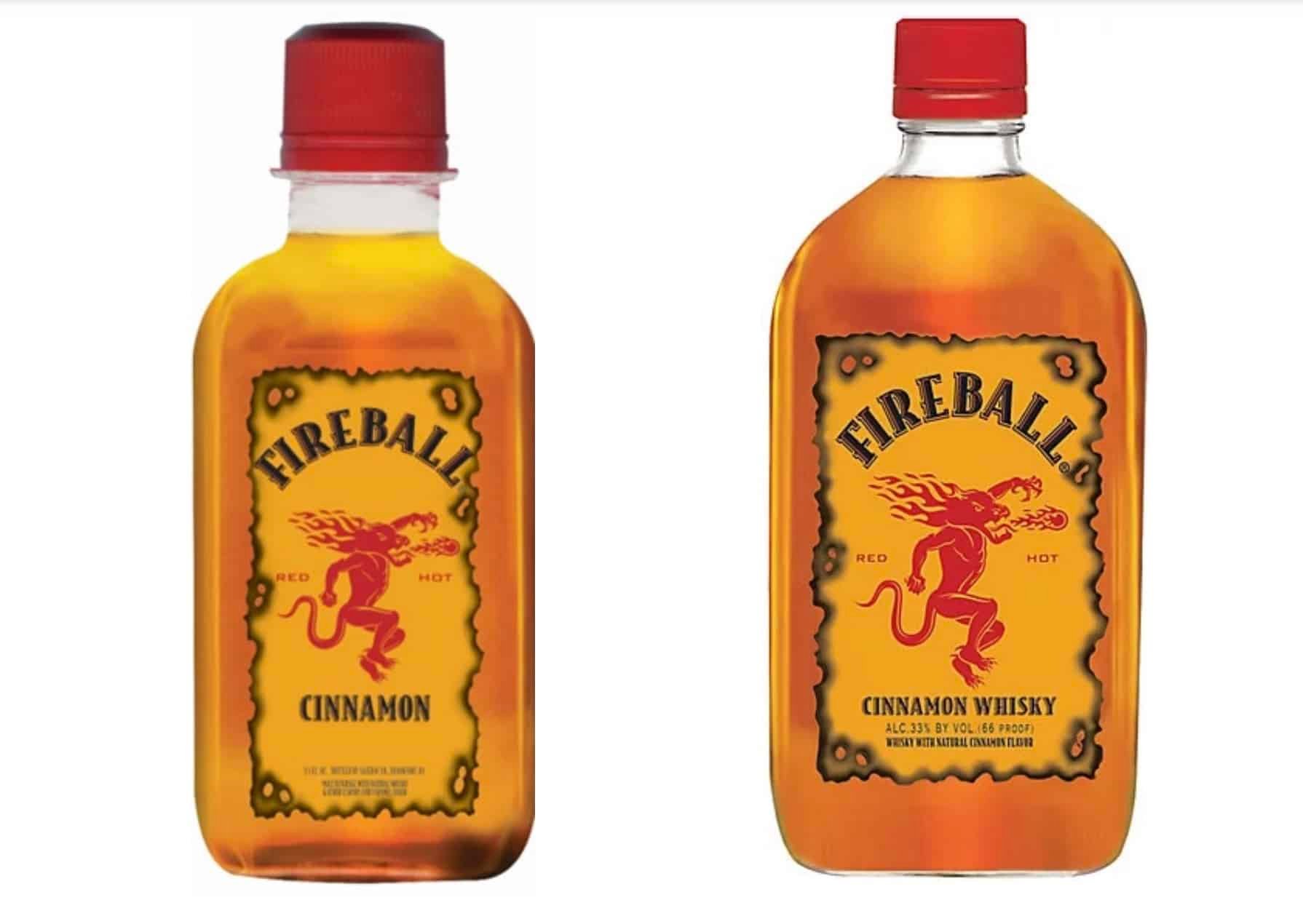SAN FRANCISCO (CN) — “The light music of whisky falling into glasses made an agreeable interlude,” wrote Irish author James Joyce in his beloved 1914 anthology “Dubliners.” Joyce, however, was reasonably sure that what was falling into his glass was real whisky.
Not so for Potter Valley, California, resident Christopher McKay, who sued distiller Sazerac this past February after discovering that the bottles of cinnamon-flavored whisky he’d been buying weren’t whisky at all, but malt liquor.
And on Thursday, U.S. District Judge Edward Chen denied Metairie, Louisiana-based Sazerac motion to dismiss the suit, saying that many of the features of its whisky-flavored malt beverage’s packaging “could affirmatively mislead consumers.”
There are striking similarities between the labels for Fireball Whisky — a cinnamon-flavored, 66-proof whisky developed in Canada in the 1980s — and Fireball, a whisky-flavored malt beverage that contains no whisky and about half the alcohol. The labels for both products are remarkably similar. The label for Fireball Whisky says exactly that, while the label for the malt beverage simply reads Fireball and uses the same overall design and illustration as its boozier counterpart.
Introduced in 2020, the “Fake Fireball,” as McKay’s complaint describes it, comes in 50-milliliter miniature bottles, which only added to the confusion because Fireball “knows that particular packaging — i.e., ‘minis,’ miniatures, trial size, shots, shooters, nips or airplane bottles — is strictly associated with distilled spirits” McKay says, suggesting that Fireball’s goals were less than honorable.
“Defendant accomplished its nefarious goal. It expanded the Fireball market to an additional 170,000 stores nationwide that have beer and wine licenses but no liquor licenses, including, in California, gas stations, convenience stores, and other retail establishments with only a beer and wine license," McKay says in the complaint.
McKay accuses Fireball of using the nearly identical labels so that consumers won't notice the difference, “unaware that Fake Fireball does not contain whisky” unless they made a point of reading the tiny text on the bottles. To make matters more challenging for consumers, “these bottles are small and are often displayed behind a counter.”
In its motion to dismiss, Sazerac argued that “no disclaimer is involved because there is nothing to be disclaimed,” but, as Chen pointed out, “Sazerac merely reiterates that it believes consumers are not confused to begin with, something that cannot be assumed as a matter of law.”
Chen also took issue with Sazerac’s claim that McKay should have known that the little bottles weren’t actually whisky because he bought them in a gas station and gas stations “are not licensed to sell hard liquor.”
“A reasonable Californian consumer could nonetheless believe that he was buying Fireball Whisky,” Chen noted. “For instance, he could well be unaware of which establishments hold which liquor license types. He may not know that a gas station store can sell malt but not whisky. This is especially so if he is making a quick roadside purchase. He might also assume that the store is not complying with the terms of its liquor license.”
Sazerac argued its distribution was structured in a manner which prevented Fireball Whisky and Fireball from being placed in the same retail outlet, “but the reasonable consumer may not be aware of Sazerac’s distribution practices,” said Chen.
And while Sazerac argued that an unjust enrichment claim is not a standalone claim but rather akin to restitution, McKay argued and Chen agreed that unjust enrichment is indeed standalone under California law.
“Sazerac exhibited good judgment in abandoning this argument in its reply brief,” Chen said.
Finally, the judge ruled that McKay has standing to seek injunctive relief to prevent Sazerac from continuing to use the allegedly deceptive labeling which lured him into buying Fireball malt in the first place.
Sazerac’s attorneys did not respond to a request for comment by deadline.
Subscribe to Closing Arguments
Sign up for new weekly newsletter Closing Arguments to get the latest about ongoing trials, major litigation and hot cases and rulings in courthouses around the U.S. and the world.








